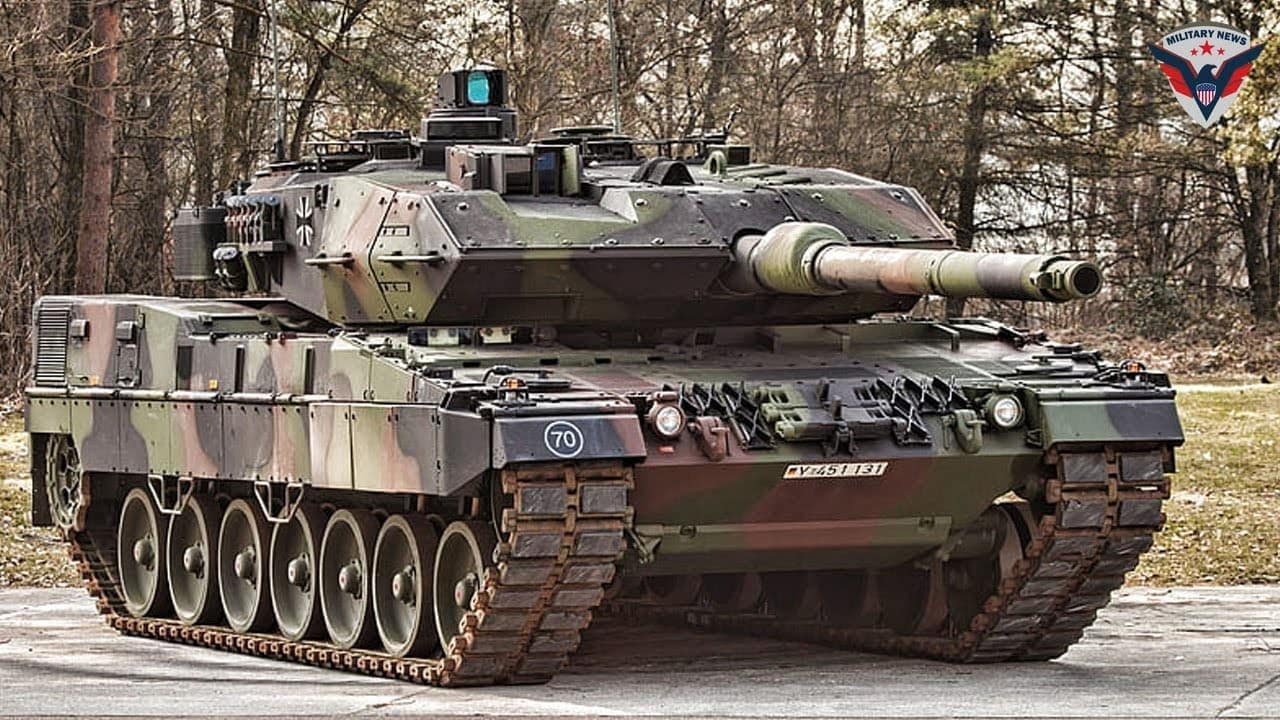Germany is making a mistake not sending Leopard 2 tanks to Ukraine: Two images are currently making the rounds in social media. The first defines the verb “scholzing”—as in German Chancellor Olaf Scholz—as “communicating good intentions, only to use/find/invent any reason imaginable to delay these and/or prevent them from happening.”
The second depicts the object of scholzing: a bullet marked Leopard 2 attached by tape to the shell of a snail. The Leopard 2 is the German-made tank that Berlin has proven very reluctant to deliver to Ukraine in its resistance to Russia’s genocidal war.
Why No Leopard 2?
There are reasons for Germany’s foot dragging. The Wall Street Journal identifies three: “Public opinion, historic responsibility and fear of an escalation.” And indeed, according to a German journalist: “Surveys find that the attitude of the German government corresponds to the expectations of large parts of the German population. A representative survey conducted in August [2022] … showed that 80 percent fear a spillover of the war from Ukraine to neighboring NATO countries and 69 percent fear a Russian nuclear strike; 72 percent say they feel threatened by Russia. At the same time, however, most Germans (52 percent) want the government to continue to act cautiously in international affairs. Of the 41 percent of respondents who would like to see a stronger presence, 65 percent hope for more diplomacy, but only 14 percent for more military support, and 13 percent for more financial commitment.”
Germans are also very sensitive about having started two world wars and committed the Holocaust and therefore feel they have a responsibility to act peacefully. Finally, there is the fear that supplying Ukraine with German tanks would be the equivalent of crossing a Rubicon, implicating Germany directly in the war, and provoking the Russians to up the ante.
The reasons are not unsound, but they ultimately fail to persuade.
The point of leadership is to lead, to convince people that certain things must be done, and not simply to follow.
To follow public opinion surveys isn’t just an abdication of leadership.
It’s also counterproductive and immoral, especially in circumstances that cry out for immediate action.
Russia started a war and is committing genocide. Germany, as a country that is still atoning for its wars and the Holocaust, should know better than to listen to public opinion and enable Russian atrocities. The German political class has a moral obligation to do the right thing, even if public opinion is skittish.
There’s also the geopolitical dimension. Like it or not, Germany is the most powerful country in Europe. As such, it has to play a central role in the geopolitics of the continent. Scholz’s insistence that Germany will provide tanks only if other countries do so first is a classic instance of evading responsibility by hiding behind Europe’s skirts.
That insistence amounts to a hypocritical free ride on the security initiatives of the West in general and the United States—which many Germans still resent for being too intrusive in European affairs—in particular.
Fear of escalation is the least persuasive reason for the lot. Berlin seems to be oblivious to the fact that Russia has steadily escalated for the last nine years. First, it invaded Crimea and parts of the Donbas in 2014. Then, in 2021, it encircled Ukraine with its troops and publicly declared that Ukrainians have no right to exist. On February 24, 2022, Russia initiated a “special military operation” that turned out to be an all-out assault.
A few months later, Russia opted for a scorched earth policy and genocide: gang rapes, the kidnapping of children, the destruction and looting of cultural artifacts, mass executions, and indiscriminate bombing of civilian targets.
The West did nothing to provoke this escalation. It was the product of the Kremlin’s determination to destroy Ukraine and Ukrainians and win the war it started in 2014 at all costs, by even committing genocide.
Russian strongman Vladimir Putin is determined to fight even at the cost of hundreds of thousands of dead Russian soldiers. Russia’s escalation will therefore stop only when it is stopped—by outside forces, and that means Ukraine and the West.
German Leopard 2 tanks could make a difference, and German policymakers know it.
Unfortunately, their dilatory behavior on the Leopard 2 makes them and their constituents complicit in the deaths of Ukrainians and, thus, in genocide.
MORE: Donald Trump Just Destroyed His 2024 Changes
MORE: The F-15EX Is No F-35
MORE: The One GOP Candidate Worse Than Donald Trump
A 19FortyFive Contributing Editor, Dr. Alexander Motyl is a professor of political science at Rutgers-Newark. A specialist on Ukraine, Russia, and the USSR, and on nationalism, revolutions, empires, and theory, he is the author of 10 books of nonfiction, including Pidsumky imperii (2009); Puti imperii (2004); Imperial Ends: The Decay, Collapse, and Revival of Empires (2001); Revolutions, Nations, Empires: Conceptual Limits and Theoretical Possibilities (1999); Dilemmas of Independence: Ukraine after Totalitarianism (1993); and The Turn to the Right: The Ideological Origins and Development of Ukrainian Nationalism, 1919–1929 (1980); the editor of 15 volumes, including The Encyclopedia of Nationalism (2000) and The Holodomor Reader (2012); and a contributor of dozens of articles to academic and policy journals, newspaper op-ed pages, and magazines. He also has a weekly blog, “Ukraine’s Orange Blues.”

